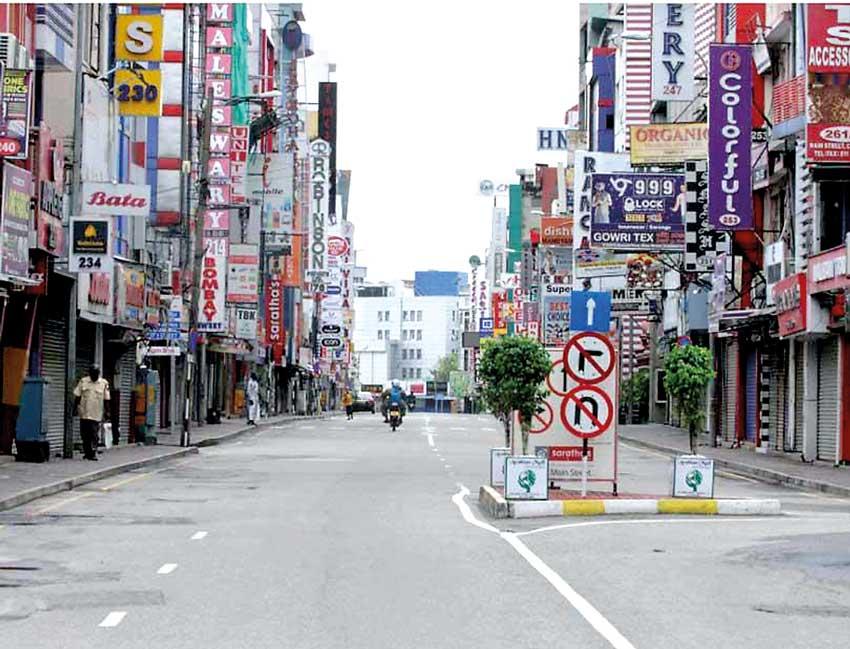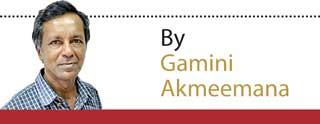Travel restrictions don’t apply to the mentally deranged
 |
1 July 2021
The decision to finally end the ‘travel restrictions’ shows that the government realizes how desperately people are trying to make ends meet. This is the third time since March 2020 that travel (meaning stepping out into the street) was ‘restricted’ (meaning you were effectively locked in, except in case of emergencies and essential services).
The law of diminishing returns seems to govern the official terminology. That was why lockdown has been watered down to ‘travel restrictions,’ trying to take the sting out of it. What counts is this. Three ‘restrictions’ within a year have effectively wiped out what scant resources most people had to fall back on, and there are millions who do not have even that. 
People were advised to grow their own vegetables. A good part of the population lives in crowded urban contexts, and they can produce very little. In short, we can’t go back to a subsistence economy even if circumstances leave us with little choice.
Then comes the psychological toll of being confined to home for weeks and weeks. Many live in crowded spaces. Stories of children becoming unruly and even violent became common. In better developed countries, people began reading more. Book sales increased in parts of Europe. Over here, this happened only in small numbers. The second hand book shop I frequent did well last year, but this lockdown left its owner with hardly any customers. People in that income bracket looking for second hand books, simply don’t have the money to buy them.
Besides, reading levels are low in this country. Instead of reading books, people in the teens to forties age group spend time surfing the net with smart phones. Facebook has become their favourite haunt to kill time, and chat rooms are ever so busy. I am relatively new to Facebook, and I don’t trust it that much. Over a year of FB usage, I discovered its pitfalls, black holes and its uses.
But you have to watch out, as productive, creative levels among our FB users are low, and many simply find it a heaven to chat up others and find cures for their boredom. I have stopped answering video calls because my time is precious and I don’t have the time to be chatting. Whenever I answered a video call, I would find the caller sprawled on the bed, any time of day, and staring at the phone and the ceiling. No wonder, reading levels aren’t going up.
That is as far as what goes on inside a house. Outside, in the streets, it could get scary. Theft and robbery have increased. A business establishment along the street where I live was broken into. A parked motorcycle was stolen. Theft of motorbikes and three wheelers have increased alarmingly. After someone stole my helmet from the garage, I began locking the gates. But it wouldn’t be too difficult to climb over them, and I live in permanent dread of losing my bicycle. It’s locked, but CCTV footage has shown how locked bicycles have been stolen from houses in Colombo, notwithstanding very high walls.
Theft is only part of the problem. As mental health problems increase, mentally unbalanced people are on the move despite ‘travel restrictions.’ I personally experienced two cases during the past month.
The first instance was about a month ago, in the early days of ‘travel restrictions’. Hearing a commotion, I was amazed to see a small-built man in a sarong tucked up to his thighs, minus a shirt but wearing a mask pulled well below his mouth, trying to force open the gate. I asked him what he was doing.
“I came to collect my clothes,” he told me, trying to force open the gate. I told him to go away, but he looked at me as if I was an intruder in his house.
“This is my house,” he told me. “My clothes are here.”
I took him for a drunk. Hearing the commotion, the two security guards at the company next door came and told him to go away, but he kept banging on the gate, insisting he needed to collect his clothes.
Finally, I called the police emergency. The policeman on duty told me to lock the gates until the police came.
The gate was already locked. After several minutes, the man began walking away, muttering to himself.
I began to suspect he was deranged, not drunk. Had he escaped from an institution? The only such institution in Colombo was at Angoda, and it was inconceivable that he could have escaped and walked all the way here.
Two hours later, after it grew dark, I heard someone muttering in the garage. Opening the door, I was shocked to see the same man wandering about inside, his mask now gone.
People were advised to grow their own vegetables. A good part of the population lives in crowded urban contexts, and they can produce very little. In short, we can’t go back to a subsistence economy even if circumstances leave us with little choice
I asked him how he had got in. Being very small, he must have somehow forced the garage doors open and squeezed himself in.
He gave me a silly grin and said, “Don’t you know me? I am Danny, and I came to collect my clothes.”
I opened the gate and threw him out. It was taking a terrible risk, assuming that he was infected. But I had no other way of getting him out, as calling the police was completely useless.
Muttering again, the man walked down the street. After several minutes, I took my bicycle and went looking for the man. Here was a deranged man on the loose. He was a danger to others and to himself. I thought I should follow him till we came across a police checkpoint, and ask them to detain him.
I found him in the next street. An angry man was hitting him with a waist belt.
“This drunkard walked right into my house,” the angry man told me. “He tells me it is his house!”
I told him the man was deranged, not drunk, and asked him to stop belting him. The man began walking away again, muttering to himself.
I gave up and returned home. There was no police checkpoint close by, and I didn’t want to be following a madman along these empty streets.
The second instance happened during the final week, around 9.00 pm when I was out feeding stray dogs close to Lady Ridgeway Hospital. I was feeding a dog when I heard a man shouting, and excited dogs running and barking. I looked up to see a strong young man, wearing pants and with a backpack but minus a shirt and shoes and his mask pulled down to his chin, screaming and chasing the dogs.
He saw me feeding this dog, came straight at me, and asked me what I was doing. I told him I was feeding the dogs.
He joined his hands together and thanked me profusely. Then he began walking fast, screaming at the barking dogs. Stopping about ten meters away, he turned and began shouting at me.
“You are the one who stole my money!”
He began running straight at me. It was raining, and he was in such frenzy that he slipped and fell.
This gave me the time to turn my bicycle and pedal away. Stopping near the hospital, I told the security guards there was a deranged man on the loose and they should call the police. They looked the other way. As the man began running towards me again, I began riding away.
Who are these people? I don’t believe they have escaped from a mental health institution. I think they have either escaped from their homes or been thrown out because their levels of stress and neuroses, kept under the lid under normal circumstances, have finally spun out of control.
And they were roaming the streets at will during lockdown. Over 40,000 sane people have been arrested for breaking ‘travel restrictions.’ These deranged men, and others like them, must have passed police checkpoints in their senseless wanderings, but were they arrested, or did the police simply look the other way?
It’s scary to think about it.


No comments:
Post a Comment
Note: only a member of this blog may post a comment.